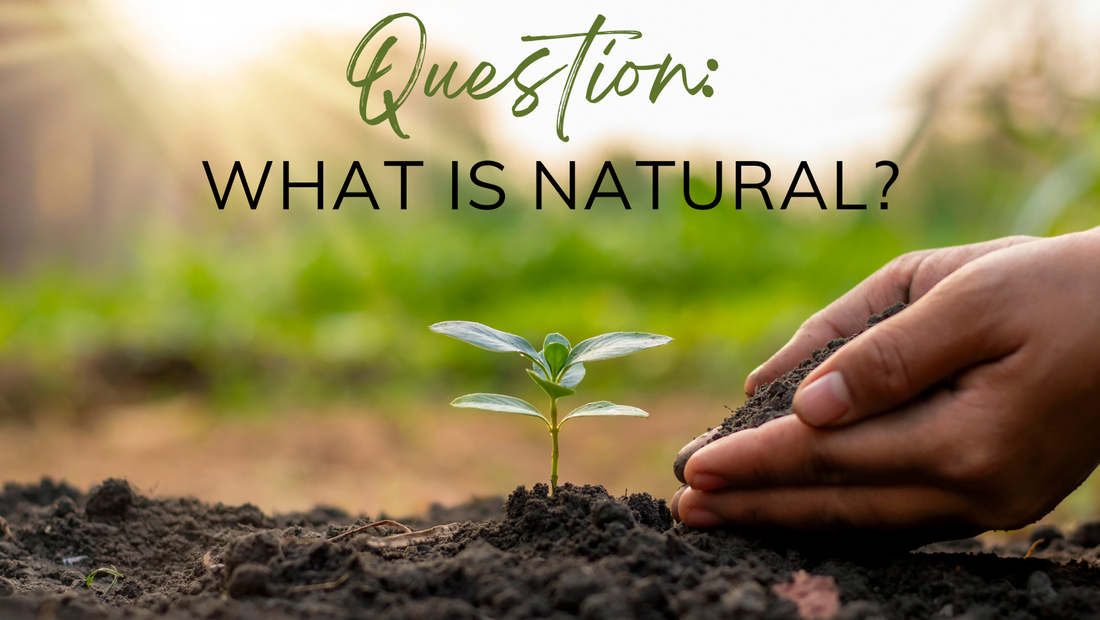
Question: What is Natural?
Share
I think the first thing that is important to point out here - the word ‘Natural' - is not defined in the cosmetic industry. What one person believes is natural is not representative of what another may believe. This leads to everyone having a different definition. And, that is completely fine.
There is also confusion that natural is better - or safe. This is not always the case.
This is one reason why I follow a ‘Clean’ program - it makes more sense!
But, just in case you’re wanting some thoughts…
Ingredients can be tricky and confusing, so I wanted to share a bit about how I look at natural, naturally-derived, and naturally-derived with synthetic component ingredients.
How I define…
Natural: A simple thought… I pick a peppermint leaf from my garden, rub it between my fingers to release the aroma, and leave it on my table to freshen the air. Other examples would be pressing the oil from a plant seed (cold-pressed) or dried flowers and herbs. The ingredient is still in its original state (not changing the chemistry).
Naturally Derived: A simple thought… I pick a peppermint leaf from my garden and dry it. I then crush it up with some tea leaves, add it to some boiling water with a bit of sweetener and voila! So, this isn’t exactly how a naturally-derived ingredient may be created or processed, but you see the point - the ingredient is at least 50% or more natural/original as it comes from a whole plant, but it has gone through a process to create a reaction which is to taste better or perform better. Kombucha is a great example, too! It has gone through the fermentation process (chemical reaction).
Naturally Synthetic: Not sure that there is a simple thought here, but basically how I see this ingredient is it is identical to the ingredient found in nature (chemical structure), but it’s man-made (synthetically produced). Vitamins - like Niacinamide that I use. Citric Acid is another great ingredient that I use to balance the pH of products. It can be found in citrus fruits, but not at the scale formulators would need. Ultimately, there are good and bad, just like good and bad natural.
Synthetics on their own are a whole other issue as there are both good and bad synthetic ingredients. Just like natural ingredients - there are both good and bad. I choose to use synthetic ingredients when all else fails to find a suitable natural or naturally-derived option and they are sourced with naturally-derived components. Another point to consider, this is my opinion… good synthetic ingredients are sustainable, too! With the amount of ingredients needed - like a B vitamin for instance - to grow this naturally in fruits and vegetables would not be sustainable.
Just some food for thought.
Have a beautiful day!
